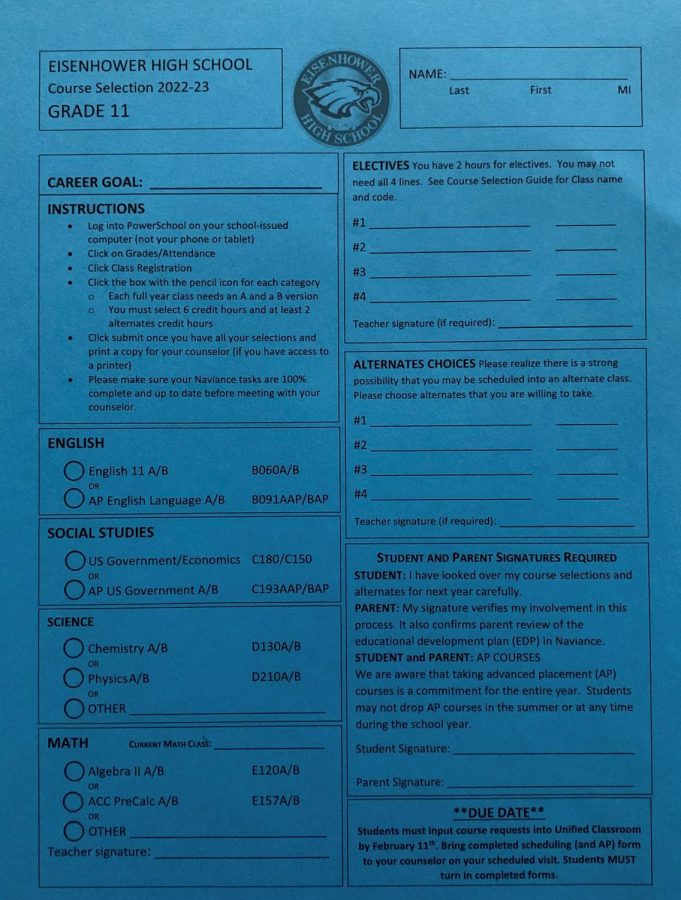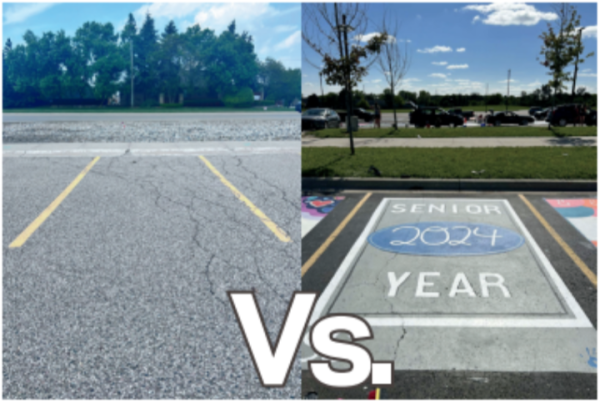Required, not inspired
Should non-optional courses that students may not be interested in taking be required to graduate?
Students fill out their schedules for the next school year. “Honestly, I dislike required classes. I understand the need for some of the classes and I find a few of them to be pretty informational, but others I would hardly pass on. In some of them, no learning is being done and kids could be doing something so much more beneficial to their career,” junior Leviathan Rossi said. Rossi chose to opt out of his required courses in his senior year and replace them with other classes he would enjoy.
As students schedule their classes for the next school year, the familiar excitement of taking personalized electives arises again.
Having the opportunity to customize classes and choose electives that match their personal interests are some of the most memorable parts of a student’s scheduling experience. However, this experience is sometimes tarnished when required courses get in the way.
To meet the minimum graduation requirements, Utica Community Schools (UCS) requires a total of 22 high school credits to be earned in total. This high number requires students to take an array of non-optional classes to graduate, such as physical education or foreign language.
These required classes fill up a student’s schedule and could potentially leave no room for their own preferred electives. A student may lack interest towards these classes, which may show in their assignments and tests, resulting in possible poor grades.
“An overwhelming number of students, 87 percent, want to eventually earn a college degree and land a career. But many believe that their schools aren’t helping them develop the skills they’ll need to succeed after graduation,” According to Edsource.
Required courses could get in the way of a student taking classes that might be for their own personal benefit. They might want to take classes to better prepare themselves for life after college, but their schedule could potentially become bombarded with required courses and they may not even pertain to the student’s career path, taking away the experience they desire.
Studies suggest that students are more academically motivated when one of four conditions is present: when they feel competent enough to complete the task at hand; when they see a direct link between their actions and an outcome and have some control over whether or how to undertake a task; when the task has interest or value to them; and when completing the task brings social rewards, such as a sense of belonging to a group or approval from someone they care about, according to Forbes.com.
Many may argue that these required courses are crucial to a student’s educational track and put them in classes out of their comfort zone, potentially trying new things. While this is a valid point, it still seems unethical to have these unnecessary classes.
School districts need to consider this prolonged issue and act on it accordingly. Future students’ lives could be changed for the better and lead their interests into a more involved academic career.
Your donation will support the student journalists of Eisenhower High School. Your contribution will allow us to purchase equipment and cover our annual website hosting costs.











